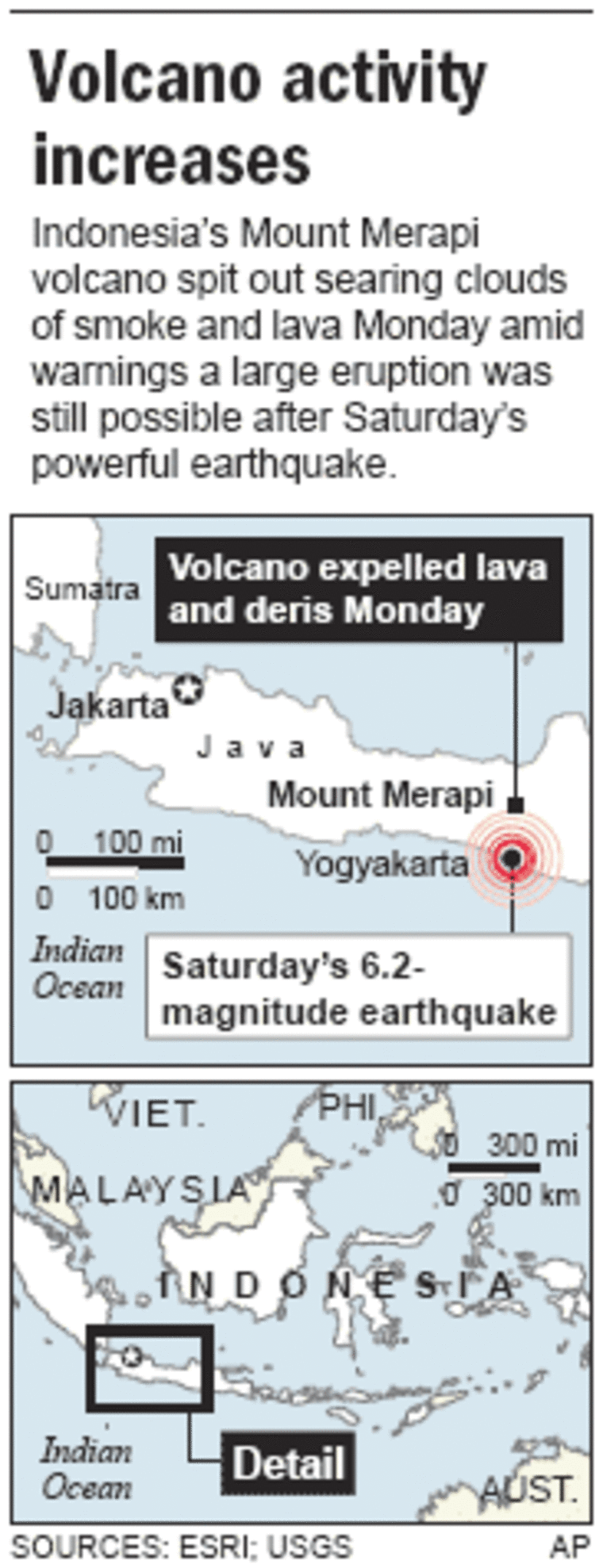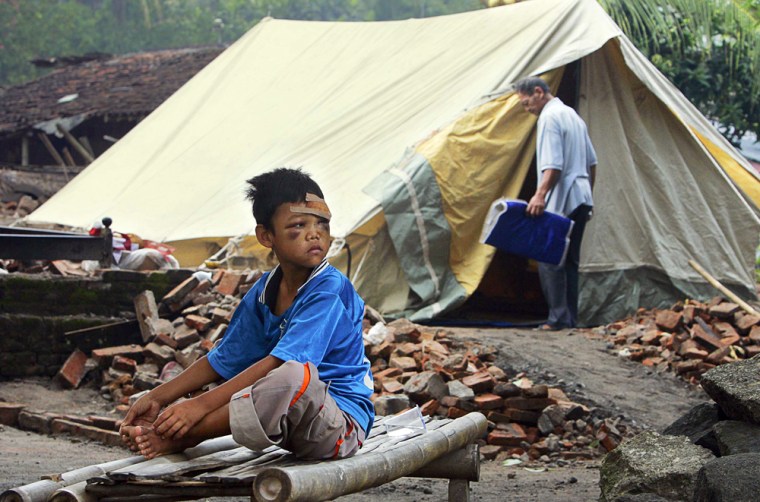YOGYAKARTA, Indonesia — After spending a few days traveling around Yogyakarta, the main city in the area ravaged by Saturday’s 6.3 magnitude earthquake, what's struck me most is how residents have handled this calamity with such grace under pressure.
Despite more than 5,800 deaths and as many as 200,000 left homeless, there is no sense of panic or alarm. That was the case even when we arrived just 36 hours after the devastating quake struck Saturday morning.
All of the people we’ve talked to, while obviously upset and in some cases traumatized by what happened, are calmly going about the task of resuming their lives — salvaging what they can, mourning the dead, tending to the injured and doing what must be done in order to survive.
Sense of community carries the day
There is a very strong sense of community that has come into play during this crisis. Nearly every neighborhood we've visited has a "Posko" or command center set-up (which I’m told is a vestige of political party organizing).
But over the past few days neighborhood leaders have been tracking members of their community, ensuring that medical care is available, and organizing resources to get through the coming days and weeks. They are also actively seeking out assistance, not merely waiting around for it to come.
It's been four days since the quake struck and relief efforts are starting to ramp-up. More than 20 countries from South Korea and Singapore to Saudi Arabia and the United Arab Emirates have pledged aid, donations and personnel.
A contingent of U.S. Marines with heavy equipment arrived on Tuesday to help with the effort to deliver aid and medical equipment.
A disaster assistance response team from the U.S. Agency for International Development is being readied and the amphibious assault ship USS Essex, which has extensive medical facilities, is en route to the area, White House deputy press secretary Dana Perino said. The United States also increased its aid contribution to $5 million.

Coordinating aid
On Wednesday morning, I spent some time with an American physician, Sue Treadwell, who is an OB-GYN from Massachusetts General Hospital.
She's been volunteering since the tsunami hit South Asia a year and a half ago, through the Geneva-based International Organization for Migration which has been helping patients move back to their home areas from hospitals and had transported 100 tons of goods on Tuesday and loaded a further 38 tons on Wednesday morning.
Treadwell told me that sufficient medical resources are arriving and that the greatest need right now was to coordinate them all so they are utilized effectively.
We've seen lots of overcrowded hospitals — literally patients lying on the floor in corridors and parking lots.
Part of the problem, it seems, is that some of the patients are somewhat reluctant to go home. In some cases they have no homes to go return to. Others are too afraid to be inside because they don't want to get caught in an aftershock (there haven't been any of significance so far).
But one of the challenges now is to assure these patients that they are fine and ready for discharge. That would help clear up facilities for more patients.
Meantime, Indonesia began immunizing quake survivors on Wednesday and helicopters swept disaster sites on Java Island to look for isolated victims.
Treadwell predicts that in a week there will be more medical facilities and staff than are needed here — a comforting thought for many, I'm sure.
